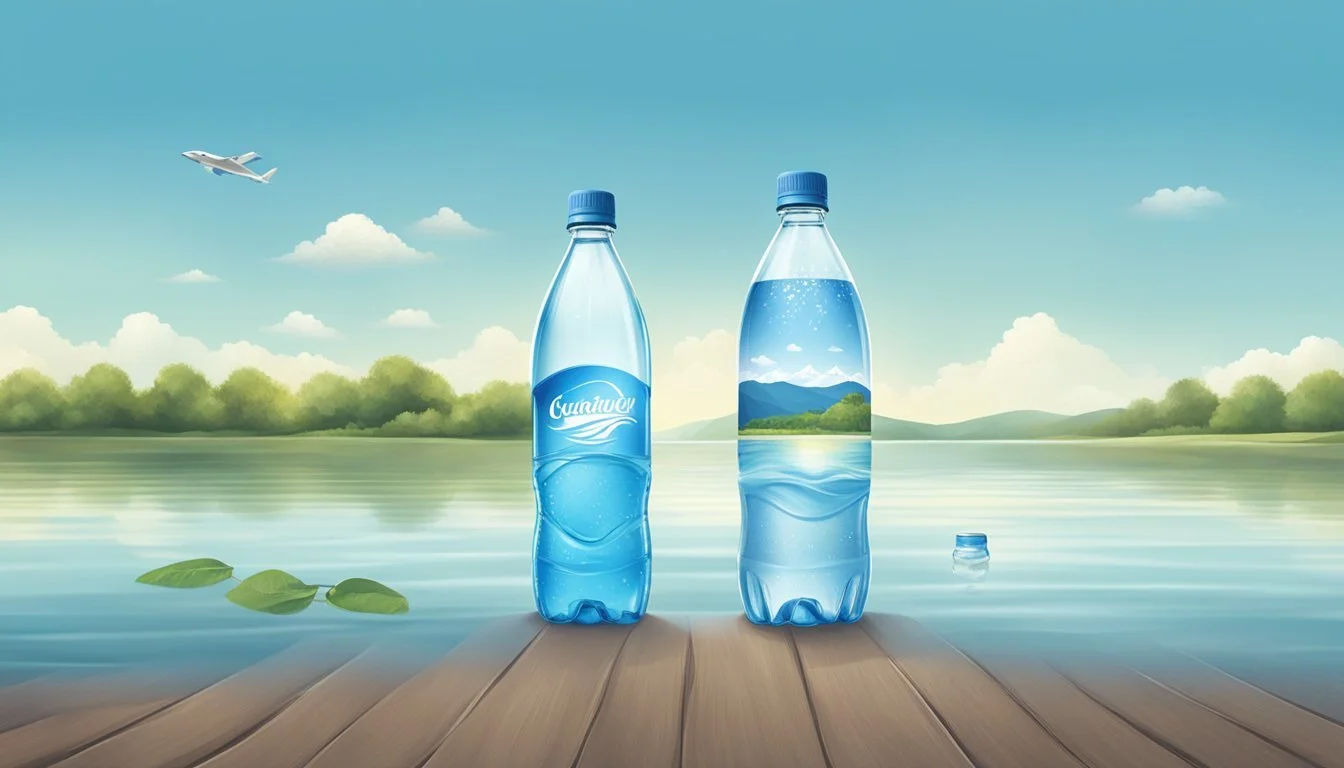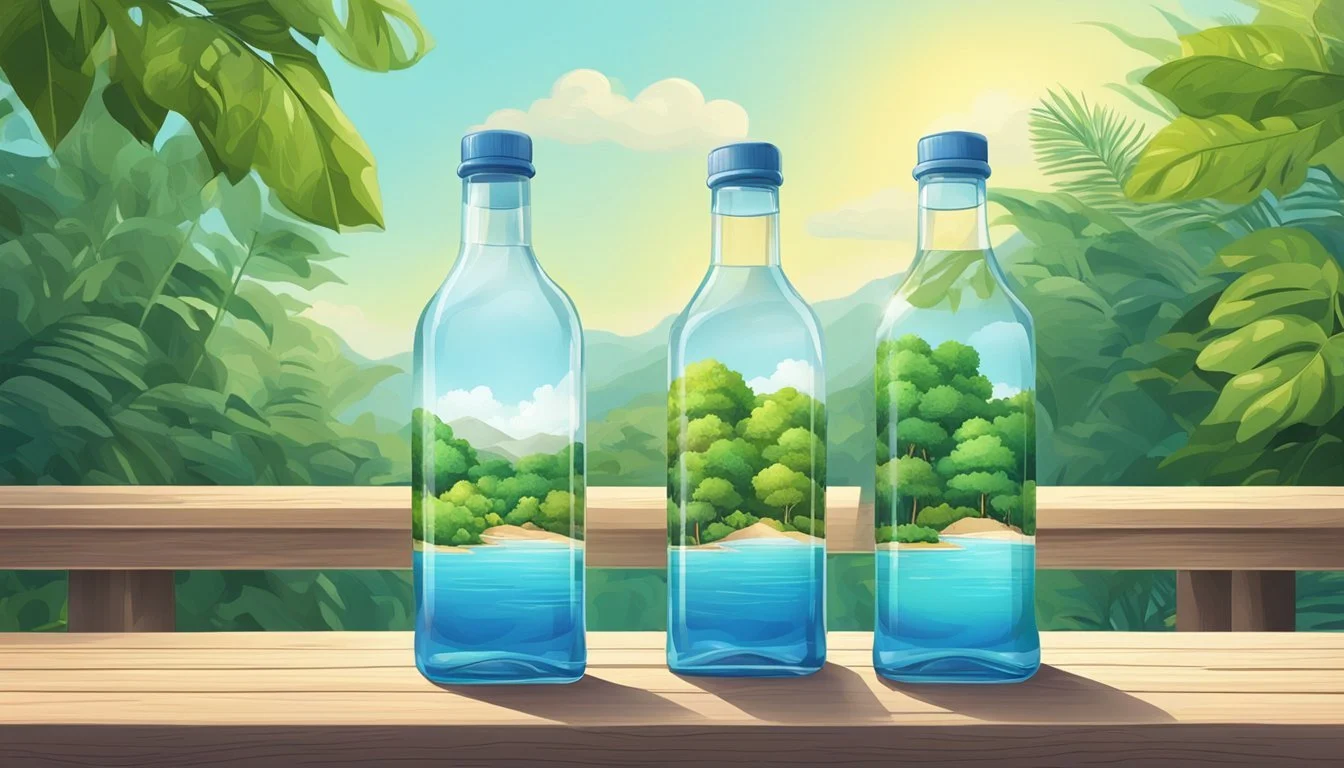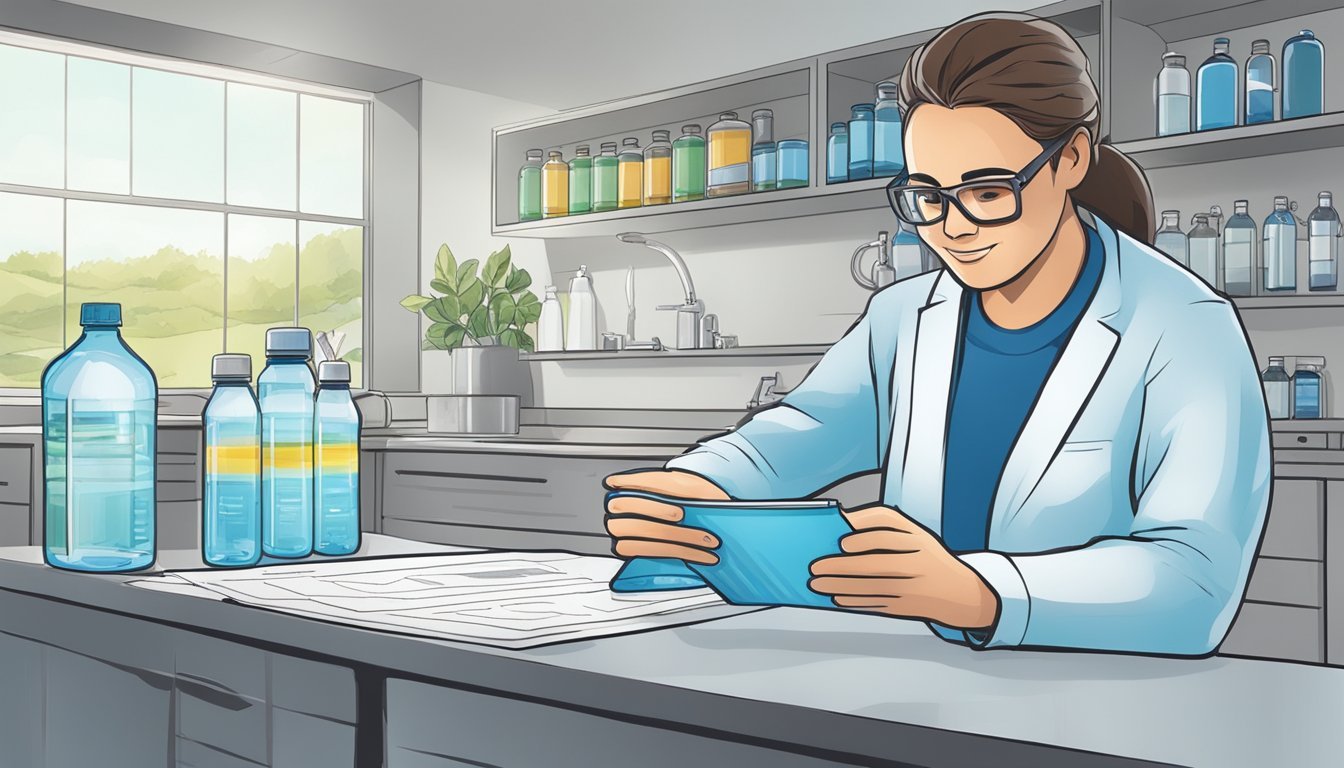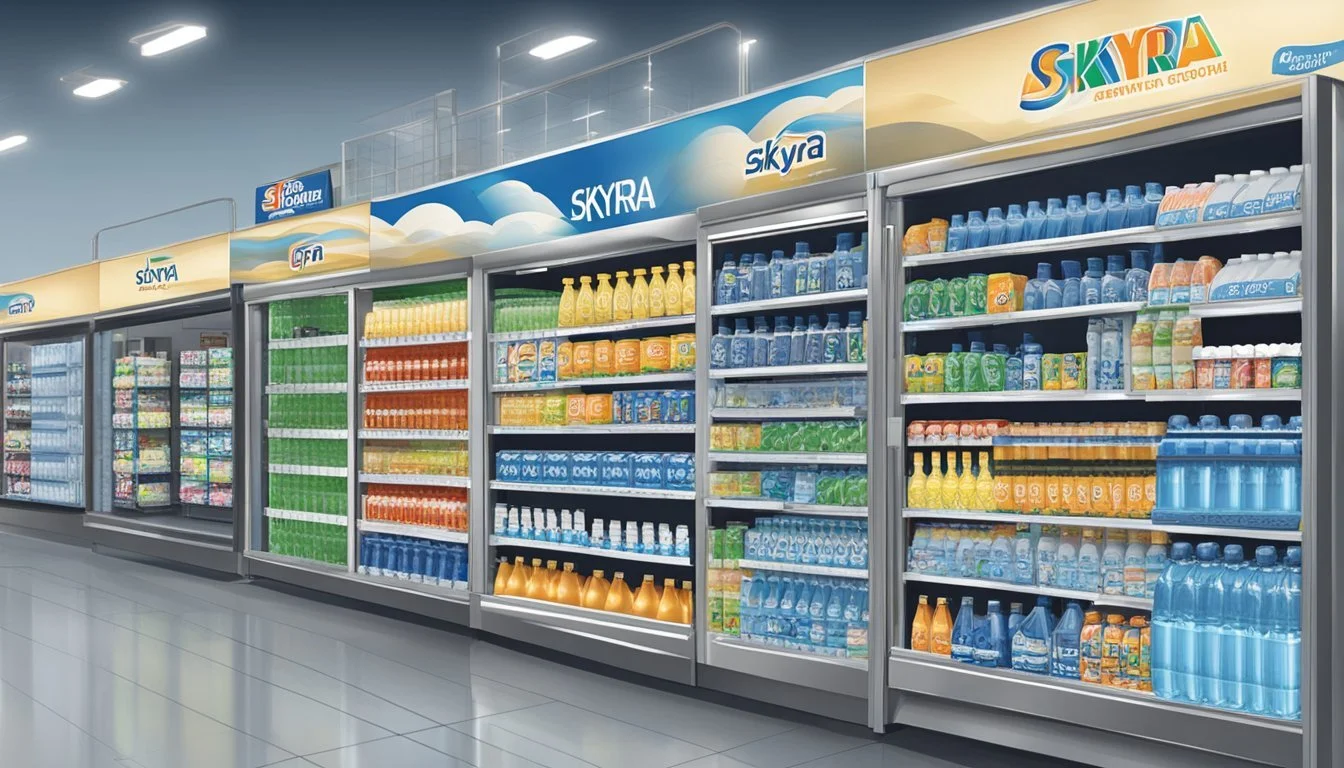Skyra vs. Open Water
Comparing the Best Bottled Water Brands
When it comes to choosing bottled water, consumers often prioritize purity, taste, and health benefits. Skyra and Open Water are two premium brands that promise to deliver on these fronts. Skyra, sourced from Icelandic springs, boasts a high pH level of 8, making it naturally alkaline and rich in electrolytes. On the other hand, Open Water, known for its eco-friendly aluminum packaging, markets itself as a sustainable choice without compromising water quality.
For health-conscious consumers seeking the best hydration benefits, Skyra offers a significant edge due to its natural alkalinity and high mineral content. However, Open Water appeals to those who prioritize environmental considerations, offering a taste of purity while minimizing plastic waste.
By weighing the unique qualities of each brand, readers can make an informed decision that aligns with their health goals and environmental values. Dive into the comparison to discover which bottled water suits your lifestyle best.
The Essence of Bottled Water
Skyra and Open Water are premium bottled water brands each with unique properties, ensuring the consumers make an informed choice. These brands differ significantly in their sources, filtration processes, and their contributions to health and hydration.
Source and Origin
Skyra is sourced from pristine Icelandic spring water filtered naturally through basalt and lava over centuries. This natural filtration enhances its purity with a naturally high pH of 8.88 and enriched electrolyte content, making it sought after for its refreshing taste and hydration benefits.
Open Water, on the other hand, is sourced from various aquifers and artesian wells across the United States. It focuses on sustainability, using recyclable aluminum bottles, which sets it apart from other brands in terms of environmental impact. This difference in source highlights the distinct nature and approach of each brand.
Filtration and Purity
Skyra's filtration process is entirely natural, leveraging the long journey through volcanic rock to achieve remarkable purity without additional treatment. This process preserves the high mineral content and maintains the naturally high pH level, promoting clean drinking water free from contaminants.
Open Water employs a comprehensive reverse osmosis filtration process. This method meticulously removes impurities, ensuring the water is exceptionally pure. Additionally, Open Water's commitment to sustainability extends to their purification process, balancing purity with environmental responsibility.
Health and Hydration
Skyra's water, thanks to its Icelandic origin and natural filtration, boasts high electrolytes which aid in better hydration. The high pH level offers alkaline benefits, potentially aiding in neutralizing acidity in the body and improving overall health.
Open Water, while focusing heavily on purity, offers water low in mineral content but free from contaminants. This makes it suitable for those seeking pure hydration and potentially beneficial in reducing dehydration risks. The eco-friendly packaging also aligns with health-conscious consumers' values, considering both personal well-being and environmental sustainability.
In choosing between Skyra and Open Water, consumers can consider whether they prioritize natural mineral content and high pH or impeccable purity and sustainability in their bottled water. Both brands stand out in their rights, catering to different needs and preferences.
Comparison of Leading Brands
Skyra and Open Water showcase distinct elements in their product offerings, including differences in varieties, branding strategies, and taste profiles.
Market Varieties
Skyra and Open Water each offer unique product lines. Skyra sources its water from Icelandic springs, providing naturally filtered water through basalt and lava, renowned for its purity and high pH level. This makes it attractive for health-conscious consumers.
Open Water focuses on sustainability, utilizing aluminum bottles and cans which are recyclable. This appeals to eco-friendly consumers. Their water is purified and pH-balanced for a crisp and clean taste. Both brands cater to specific market segments, highlighting the diverse needs and preferences among consumers looking for premium bottled water.
Labeling and Branding
The labeling and branding of Skyra emphasize its Icelandic origin and natural filtration process, positioning it as a luxury and health-conscious choice. The packaging often features captivating imagery of Icelandic landscapes, reinforcing its pure and natural appeal.
Open Water leverages its sustainability motto in its branding. The minimalist and sleek design of its aluminum cans and bottles are both eye-catching and practical, aligning with the brand's eco-friendly ethos. This branding appeals strongly to environmentally-conscious consumers who value sustainability without compromising on quality.
Taste Profiles
The taste profile of Skyra is marked by its high pH level and mineral-rich composition, giving it a slightly alkaline and smooth texture. This characteristic is often sought after by those who look for hydration benefits in their bottled water.
In contrast, Open Water offers a clean and fresh taste due to its purification process. The aluminum packaging also prevents any plastic-like taste that can be present in bottled water, making the water taste purer. Both brands are appreciated for their high-quality water, though their flavors and consumer appeal may differ, highlighting their unique positions in the market.
Environmental Considerations
Skyra and Open Water, both offer high-quality bottled water options, but their environmental impact, sustainability practices, and packaging alternatives are crucial for consumers to consider.
Sustainability and Impact
Skyra emphasizes its commitment to sustainability. By sourcing water from a self-replenishing Icelandic spring, it reduces long-term environmental impact.
Additionally, Skyra's use of eco-friendly practices aims to mitigate carbon emissions and plastic waste. Open Water, on the other hand, focuses on using aluminum packaging, which is more recyclable than plastic. Aluminum recycling requires less energy than producing new aluminum, significantly lowering carbon emissions.
Consumers should be aware of Skyra's focus on minimizing plastic use and carbon footprint. Open Water’s aluminum bottles are designed to be a more sustainable alternative to traditional plastic bottles, reducing the volume of single-use plastics.
Alternatives to Plastic Bottles
Skyra has embraced environmentally friendly packaging options like glass bottles, which are 100% recyclable and can be reused multiple times. Glass bottles do not leach chemicals and have a lower environmental impact over their lifecycle compared to plastic.
Open Water’s strong point is the use of aluminum bottles and cans, which can be recycled indefinitely without degradation. This alternative is beneficial for reducing the accumulation of plastic waste in landfills and oceans.
Consumers can also explore boxed water options, which typically use renewable packaging materials. Both brands encourage environmentally conscious choices by providing alternatives to single-use plastic, helping reduce overall plastic pollution and carbon emissions.
Analyzing Water Quality Reports
Skyra and Open Water are two popular bottled water brands, each offering distinct characteristics. This section examines their water quality reports to highlight key factors like safety parameters and mineral composition.
Water Quality Parameters
The quality of bottled water is primarily determined by adherence to safety standards set by agencies like the EPA and FDA. Skyra's water report indicates a pH level of 8, making it alkaline. This can be beneficial for those seeking to balance their body’s acidity. Open Water, on the other hand, focuses on sourcing its water from purified municipal sources, ensuring compliance with tap water safety standards.
Neither brand reports significant levels of contaminants like lead, aligning with clean water expectations. Both brands undergo rigorous testing for harmful substances, ensuring consumer safety. The independent tests on Skyra and Open Water indicate that they meet or exceed statutory requirements for bottled water safety.
Assessing Mineral Composition
The mineral content plays a crucial role in the appeal of bottled water. Skyra stands out due to its natural spring source, rich in minerals like calcium and magnesium. These contribute to both taste and potential health benefits. Skyra's detailed water report highlights higher levels of essential minerals compared to many competitors.
Open Water emphasizes purity, featuring lower mineral content due to its thorough purification process. While this results in a cleaner taste, it also means reduced levels of beneficial minerals. Key minerals such as potassium and magnesium are less prominent in Open Water compared to Skyra.
Comparing the two, Skyra offers a more mineral-rich profile, potentially enhancing hydration and taste. In contrast, Open Water provides a purer, more straightforward drinking experience.
Convenience and Accessibility
Skyra and Open Water offer different levels of convenience and accessibility, making them suitable for varied consumer needs. Key factors include packaging and availability, which impact both portability and cost.
Packaging and Portability
Skyra uses plastic bottles that are lightweight and easy to carry, catering to consumers looking for on-the-go hydration. The plastic packaging ensures that the bottles are less likely to break, adding to their portability.
Open Water distinguishes itself by using aluminum cans instead of plastic. These cans are more eco-friendly and fully recyclable, appealing to environmentally conscious consumers. Despite being slightly heavier than plastic bottles, aluminum cans are durable and provide a sleek, modern appearance.
Both companies offer various sizes, but Skyra’s use of traditional bottle shapes might be easier for some consumers to hold and use.
Availability and Affordability
Skyra is widely accessible in stores such as 7-Eleven, making it convenient for a quick purchase. Priced around $2.69 per bottle, Skyra offers a balance of premium quality and affordability for many consumers.
Open Water, while often available through specialty retailers and online platforms, may not be as easily found in everyday convenience stores. Although generally priced similarly to Skyra, the eco-friendly aspect might justify the cost for consumers invested in reducing their environmental footprint.
In summary, Skyra offers more widespread availability and traditional packaging convenience, whereas Open Water provides eco-friendly options that cater to sustainability-minded consumers.
Conclusion
Skyra and Open Water both aim to offer premium bottled water, each with distinct features.
Skyra boasts a naturally high pH of 8.88, filtered through Icelandic basalt and lava. Its electrolyte content and smooth taste make it preferred for hydration.
Open Water focuses on sustainability by packaging its water in recyclable aluminum bottles, aiming to minimize plastic waste.
In terms of taste, Skyra offers a clean, neutral profile, while Open Water prides itself on its fresh, pure flavor.
For those prioritizing eco-friendliness, Open Water's packaging might be more appealing.
Skyra could be better for individuals seeking high pH and electrolyte content.
In the quest for the best bottled water, the choice between Skyra and Open Water depends on personal priorities like taste, sustainability, and hydration benefits.
More About Skyra
Mountain Valley Spring Water vs Skyra: Which Bottled Water is Better?
Richard's Rainwater vs Skyra: Which Bottled Water is Better?
Whole Foods Italian Still Mineral water vs Skyra: Which Bottled Water is Better?
More About Open Water
Aqua Carpatica vs Open Water: Which Bottled Water is Better?
Cascade Mountain vs Open Water: Which Bottled Water is Better?
Core Hydration vs Open Water: Which Bottled Water is Better?
Crystal Geyser vs Open Water: Which Bottled Water is Better?
Hawaii Volcanic vs Open Water: Which Bottled Water is Better?
Hawaiian Springs vs Open Water: Which Bottled Water is Better?
Icelandic Glacial vs Open Water: Which Bottled Water is Better?
Mountain Valley Spring Water vs Open Water: Which Bottled Water is Better?
Nestle Pure Life vs Open Water: Which Bottled Water is Better?
Open Water vs Kirkland Signature: Which Bottled Water is Better?
Open Water vs Whole Foods 365: Which Bottled Water is Better?
Richard's Rainwater vs Open Water: Which Bottled Water is Better?
San Pellegrino vs Open Water: Which Bottled Water is Better?
Solan de Cabras vs Open Water: Which Bottled Water is Better?
Talking Rain AQA vs Open Water: Which Bottled Water is Better?
Whole Foods Italian Still Mineral water vs Open Water: Which Bottled Water is Better?






